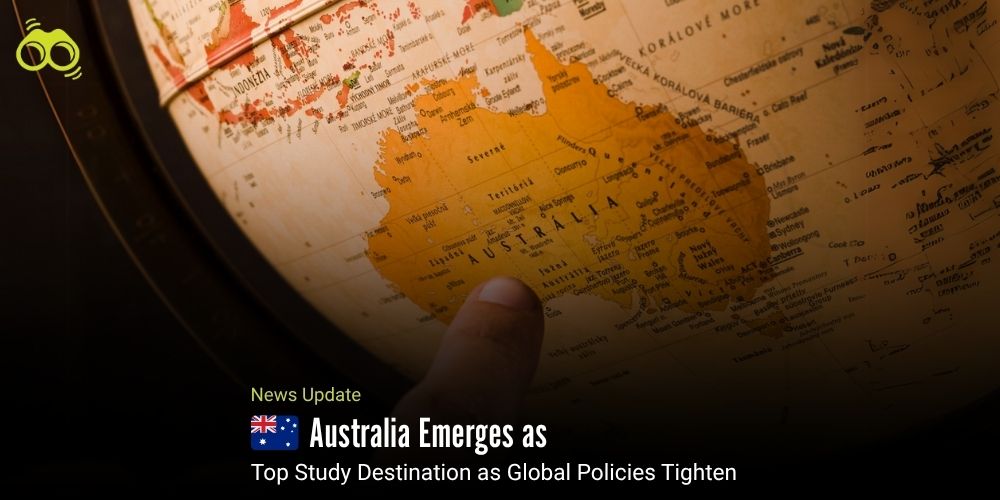The Impact of Policy Changes on Australia’s International Student Market
Sustaining Growth While Upholding Standards in International Education
Australia's higher education sector has experienced remarkable growth in international student enrolments, solidifying its position as a leading global academic destination. According to recent data from the Department of Education, the number of international students in Australia reached a record high of 1,095,298 by the end of 2024, reflecting a 13% increase compared to the previous year. This surge in enrolments has significantly boosted university revenues, with tuition fees from international students rising sharply. As reported by Julie Hare in The Australian Financial Review, four universities, Sydney, Melbourne, Monash, and the University of New South Wales, surpassed the $1 billion mark in tuition earnings in 2024, highlighting the sector's growing reliance on overseas student contributions.
Among these institutions, the University of New South Wales recorded a substantial 61% increase in overseas student revenue, rising from $877 million in 2023 to $1.4 billion in 2024. Monash University saw a 42% increase, while Deakin and Curtin experienced revenue growth of approximately one-third. The financial impact of international enrolments continues to reshape the funding structures of Australian universities. Meanwhile, other major study destinations reported declining enrolments. Canada faced a sharp drop following the introduction of student caps in 2024, while the UK saw its first enrolment decline in a decade during 2023–24, largely due to restrictions on students bringing partners. The United States also imposed limitations, pausing new international student visa processing. Additionally, Secretary of State Marco Rubio announced aggressive revocations of visas for Chinese students, particularly those linked to the Communist Party or involved in sensitive research fields.
In response, Universities Australia reiterated the country's commitment to welcoming "academic refugees" affected by policy changes abroad. Chief Executive Luke Sheehy emphasised that Australian universities remain open and supportive of displaced students, a stance echoed by Education Minister Jason Clare, who described international education as a vital national asset contributing to both economic and diplomatic interests. Further reinforcing Australia’s appeal, a report by Dutch analytics firm Studyportals revealed that Australia was the only major education destination to experience increased international student interest in early 2025. The study, based on feedback from 240 institutions across 48 countries, found that global student demand for Australian universities grew by 8% in 2025.
Despite this positive trend, the re-elected Labour government has been advised to prioritise quality over quantity in managing student and graduate visas. Proposed reforms include stricter English-language and entrance exam requirements, higher financial thresholds through escrow deposits, and a reduced connection between study, work, and permanent residency. Additional measures under discussion include limiting work hours, closing fraudulent colleges, restricting post-study visas to top graduates, and allowing only postgraduate students to bring dependents.
Furthermore, it has been recommended that the temporary skilled migration income threshold be raised above the median full-time salary, approximately $90,000 and that the Administrative Review Tribunal appeals process be tightened to prevent visa overstay abuses. These measures aim to streamline migration policies while ensuring the integrity of Australia’s international education system. Australia’s ability to maintain its status as a premier education destination will depend on striking the right balance between accessibility, economic sustainability, and the quality of its academic offerings.
Editor’s Note:
Australia's robust international education sector presents both advantages and challenges. Significant increases in student enrollment and tuition revenue underscore the nation's international attractiveness and positive economic impact. Amidst stricter visa regulations in other prominent study destinations, Australia has established itself as a favourable option for students desiring stability. This growth enhances the financial standing of educational institutions and fosters cultural heterogeneity on university grounds. Nevertheless, the expedited growth also prompts inquiries concerning quality assurance, student well-being, and the reliability of immigration channels. While encouraging international enrolments is vital for economic and diplomatic reasons, maintaining high academic standards must remain a priority. Stricter regulations on English proficiency, financial requirements, and post-study work options are steps in the right direction, but they must be implemented carefully to avoid discouraging genuine students.
Skoobuzz believes that sustainable growth in the education sector depends on ensuring that Australia’s universities remain respected for their academic excellence, not just their ability to attract high-paying international students.














0 Comments (Please Login To Continue)